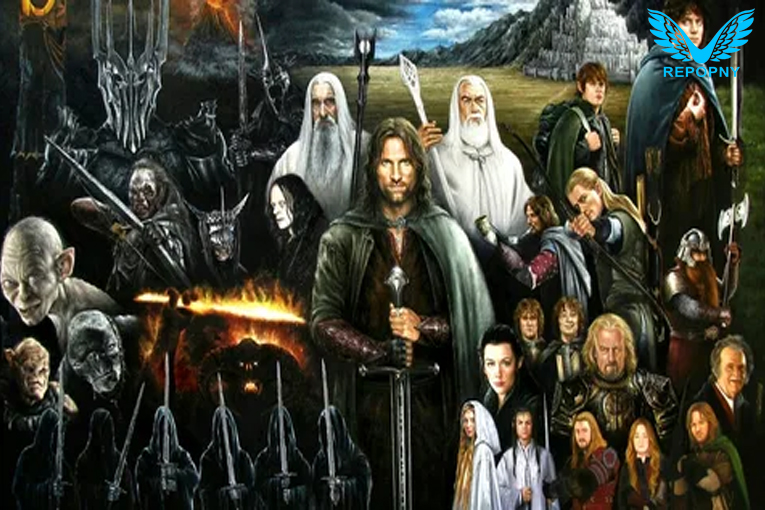The Lord of the Rings trilogy, based on J.R.R. Tolkien’s epic fantasy novel of the same name, has captivated audiences since the first installment’s release in 2001. Directed by Peter Jackson, the trilogy consists of The Fellowship of the Ring (2001), The Two Towers (2002), and The Return of the King (2003). The films were a massive success, both critically and commercially, grossing over $2.9 billion worldwide and winning 17 Academy Awards. In this review, we will explore the reasons behind the trilogy’s immense popularity and financial success.
The trilogy’s storyline follows hobbit Frodo Baggins, played by Elijah Wood, as he embarks on a perilous quest to destroy the One Ring, a powerful artifact created by the dark lord Sauron to control all other rings of power. Frodo is accompanied by a fellowship of characters, including the wise wizard Gandalf (Ian McKellen), the brave warrior Aragorn (Viggo Mortensen), the elven prince Legolas (Orlando Bloom), and the dwarf Gimli (John Rhys-Davies), among others. Together, they face countless challenges and battles, both physical and psychological, as they attempt to reach their goal and save Middle-earth from Sauron’s tyranny.
One of the main factors contributing to the trilogy’s success is its faithful adaptation of Tolkien’s source material. Jackson, along with his team of writers, managed to condense the massive and complex narrative of the books into three cohesive and engaging films, while still maintaining the books’ intricate world-building and character development. The trilogy’s attention to detail and commitment to Tolkien’s vision has earned it a dedicated fan base, who appreciate the films’ loyalty to the source material.
Another reason for the trilogy’s success is its stunning visuals and groundbreaking special effects. Jackson utilized state-of-the-art technology to bring Middle-earth to life, creating a fully realized and immersive world that audiences could fully immerse themselves in. The trilogy’s sweeping landscapes, intricate sets, and epic battle sequences were a technical marvel at the time of their release, and are still impressive to this day.
Furthermore, the trilogy’s stellar cast of actors also contributed to its success. Wood’s portrayal of Frodo Baggins was widely praised for its emotional depth and authenticity, while McKellen’s performance as Gandalf was hailed as a career-defining role. Mortensen’s portrayal of Aragorn, a character who undergoes a significant transformation throughout the trilogy, was also highly acclaimed, as was the supporting cast, which included the likes of Sean Astin, Liv Tyler, and Hugo Weaving, among others.
The Lord of the Rings trilogy was also a massive financial success, grossing over $2.9 billion worldwide. The films’ box office success can be attributed to a variety of factors, including their wide appeal across different demographics, their accessibility to both fans of the source material and newcomers to the franchise, and their marketing campaigns, which generated a significant amount of hype leading up to each film’s release.
In conclusion, The Lord of the Rings trilogy is a cinematic masterpiece that has left an indelible mark on the film industry and popular culture as a whole. Its faithful adaptation of Tolkien’s source material, stunning visuals, groundbreaking special effects, talented cast, and massive financial success have cemented it as one of the greatest film trilogies of all time. Whether you’re a fan of epic fantasy, adventure, or simply great storytelling, The Lord of the Rings trilogy is a must-watch.
- “Epic Adventure: Review of The Lord of the Rings Trilogy”
- “A Cinematic Masterpiece: The Lord of the Rings Trilogy Review”
- “Journey to Middle Earth: A Review of The Lord of the Rings Trilogy”
- “The Ultimate Fantasy Epic: The Lord of the Rings Trilogy Review”
- “An Iconic Classic: Reviewing The Lord of the Rings Trilogy’s Box Office Success”

